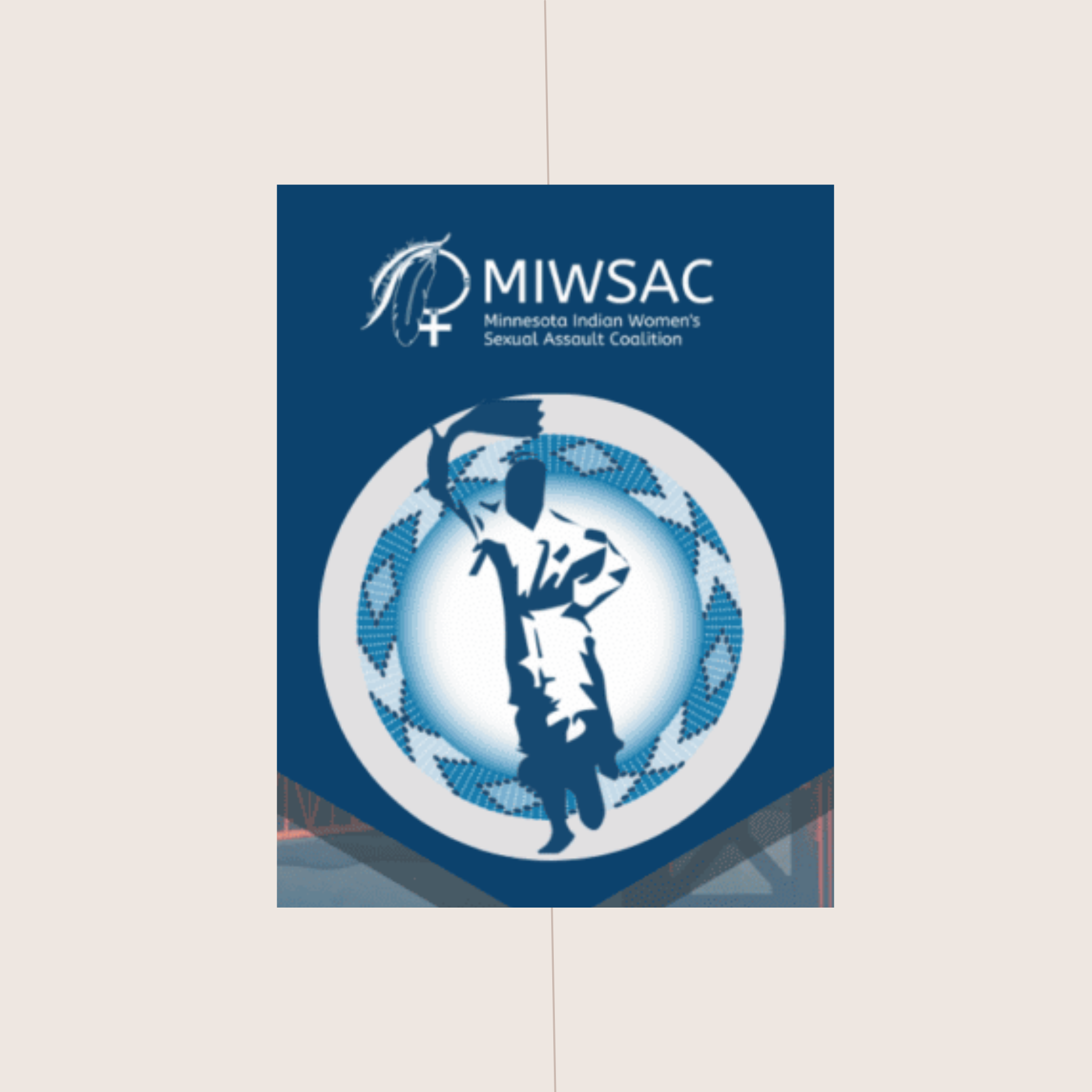2024 Strengthening Sovereign Responses to Sex Trafficking in Indian Country and Alaska Conference

The Minnesota Indian Women's Sexual Assault Coalition hosted their annual Strengthening Sovereign Responses to Sex Trafficking in Indian Country and Alaska Conference the first week of April. CCVAP’s Anu and Nina (Outreach, Prevention, & Education Coordinator and SA Advocate) had the opportunity to attend this week-long conference in San Francisco and came back with a wealth of new knowledge and experiences to share with the rest of the team.
Day 1:
The conference opened with a traditional blessing as jingle-dress dancers danced across the ballroom, providing healing for everyone present. We appreciated the inclusion of this blessing as a way to represent the traditions of Ojibwe and Sioux conference attendees from the upper-Midwest. The first keynote speaker, Whitney Anderson, presented “Roots of Resistance: Disrupting Sex Trafficking in Tribal Communities” highlighting information behind the astronomically high human trafficking rates of Indigenous people in her hometown of Oklahoma City. She is the Co-Founder of The Dragonfly Home, a victim services program in Oklahoma City serving survivors of human trafficking.
A few breakout sessions attended on day 1 included “A Course in Exploitation: The Intersection of Stalking and Sex Trafficking,” “Using Culture as a Resource to Respond to Human Trafficking in Native Communities: Building Culturally Responsive and Trauma-Informed Supportive Service Projects,” and “Language’s Impact on Identity.” The recurring themes seen throughout these sessions were an emphasis on the ongoing nature of exploitative practices against Indigenous communities. In many settings, atrocities against marginalized communities are often referred to in the past tense, which can provide a warped sense of current realities. “Language’s Impact on Identity” was especially impactful with its talking-circle style of presentation and use of poetry as the stimulus for discussion. Many heartfelt, personal accounts were shared within the circle covering topics from first-hand accounts of trafficking from survivors, to the very nature of identity.
Day 2:
The second day opened with a keynote from the Department of Homeland Security’s Blue Campaign Senior Engagement Manager, Erica Reid. The Blue Campaign is a national public awareness campaign with the DOHS Center for Countering Human Trafficking with a mission to educate the public on how to recognize and report/respond to possible cases of human trafficking. Some resources provided include free physical pamphlets and resources available for mail request and in-person presentations as well as web-based. The goals of this campaign are to decrease victimization within vulnerable communities and deter criminal activity in human trafficking.
Some breakout sessions attended on day 2 included “Prevention and Intervention: How the Trucking, Bus, and Energy Industries Can Help Combat Sex Trafficking,” “Human Trafficking in Indian Country,” “We Are All Connected: Engaging Men to Create Healing Communities.” These workshops reinforced the role of strong community networks in combating human trafficking.
Day 3:
The final day opened with a keynote from Autumn Smith-Amy on “Survivor Voices: The Intersection of Child Welfare and Human Trafficking Community-Based Advocacy.” This presentation discussed real-time community-based strategies in prevention of human trafficking at the child welfare level. Workshops attended were the “Minnesota Youth Sex Trading Project: A Community Based Exploration of Sex Trading Amongst Native+ Youth,” “Fostering Cultural Healing for Indigenous Survivors of Violence,” “Missing and Murdered Indigenous Relatives Policy, Best and Emerging Practices,” and “Honoring Our Murdered Relatives: Respectful Collaboration With Coroners and Medical Examiners.”
A standout workshop for this conference was “Minnesota Youth Sex Trading Project: A Community Based Exploration of Sex Trading Amongst Native+ Youth.” In the featured participatory action research project, Native+ youth identified a few key causes of sexual violence, exploitation, and sex trading within Native communities.
The participants identified the following as root causes of vulnerability
- Colonial and Historic Traumas
- Harmful Stereotypes
- Existing Legal Systems
- Misplaced Help
- Lack of Basic Resources
- Land & Bodies
In turn, the participants also identified disruption strategies to address the root causes of vulnerability:
Decolonize and Revitalize – unlearning harmful patterns via revitalization of Indigenous knowledge and language
Indigenized Civic Action – sovereignty-focused education and leadership education by, for, and with Indigenous youth
Critical Education – having outlets and opportunities for historically accurate, culturally-representative and sustaining education
Enhance Basic Resources for All- supporting actions to ensure that all individuals have access to basic human rights
Campaigns to Counter – public campaigns can counter mainstream stereotypes and publicly humanize Native people (especially women and Two-Spirit Relatives)
Righteous Anger, Mourning, and Healing Spaces – the need to mourn, grieve, heal, and support development of new ways and space for celebration, mourning, and safety is critical
Minnesota Youth Sex Trading Project: A Community Based Exploration of Sex Trading Amongst Native+ Youth. Anne LaFrinier-Ritchie. 2024
A few key takeaways from the MIWSAC 2024 Strengthening Sovereign Responses to Sex Trafficking in Indian Country and Alaska Conference include the importance of using correct and informed language, acknowledging the ongoing and current crisis, and applying trauma-informed and sovereignty-focused action at individual, community, and state levels. We also really appreciated the therapy dogs brought to us each day from the hotel! We’d like to give a huge thank you to the organizers from MIWSAC, Hotel Nikko San Francisco, and all the keynote speakers and workshop facilitators for this wonderful and edifying experience!